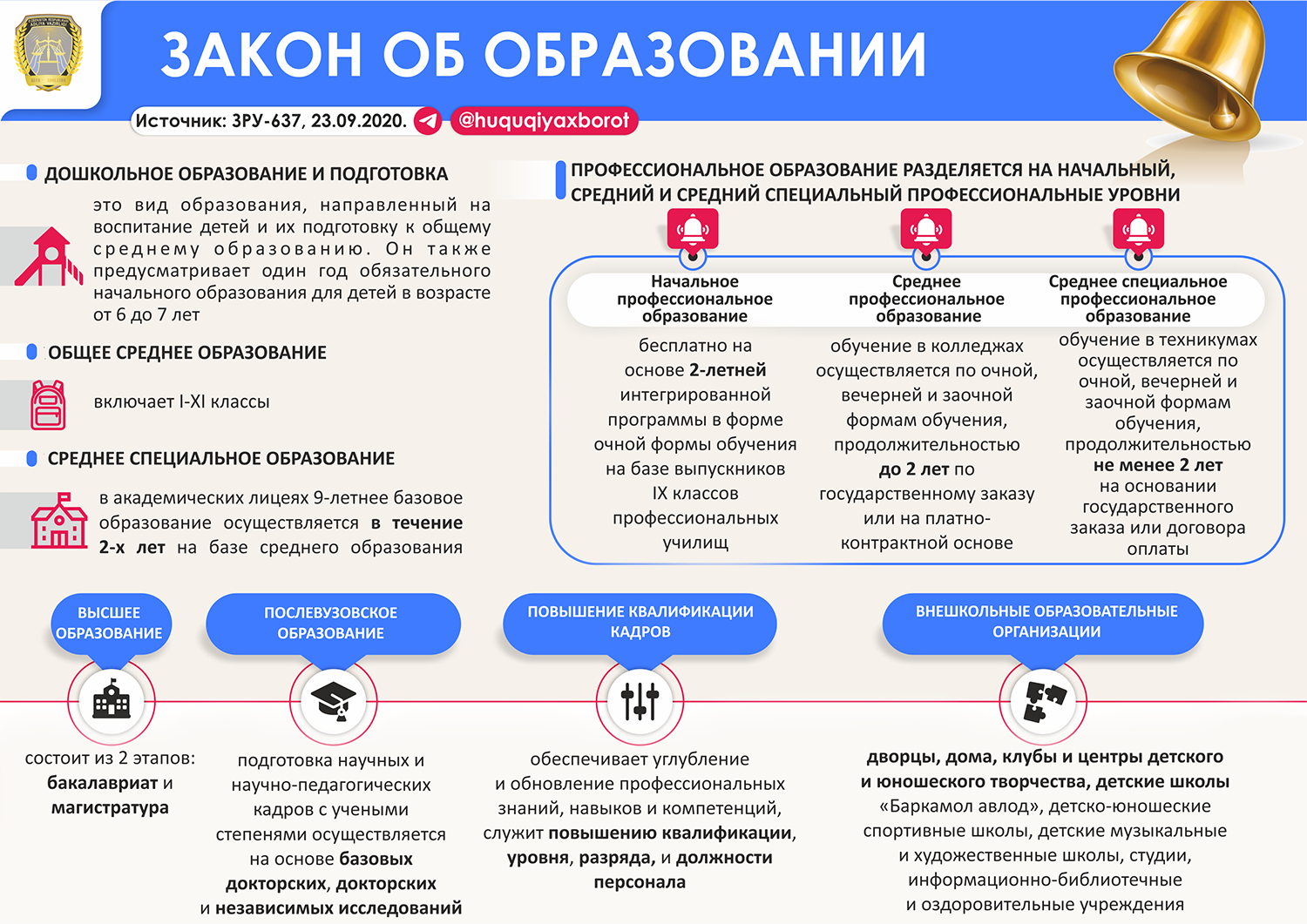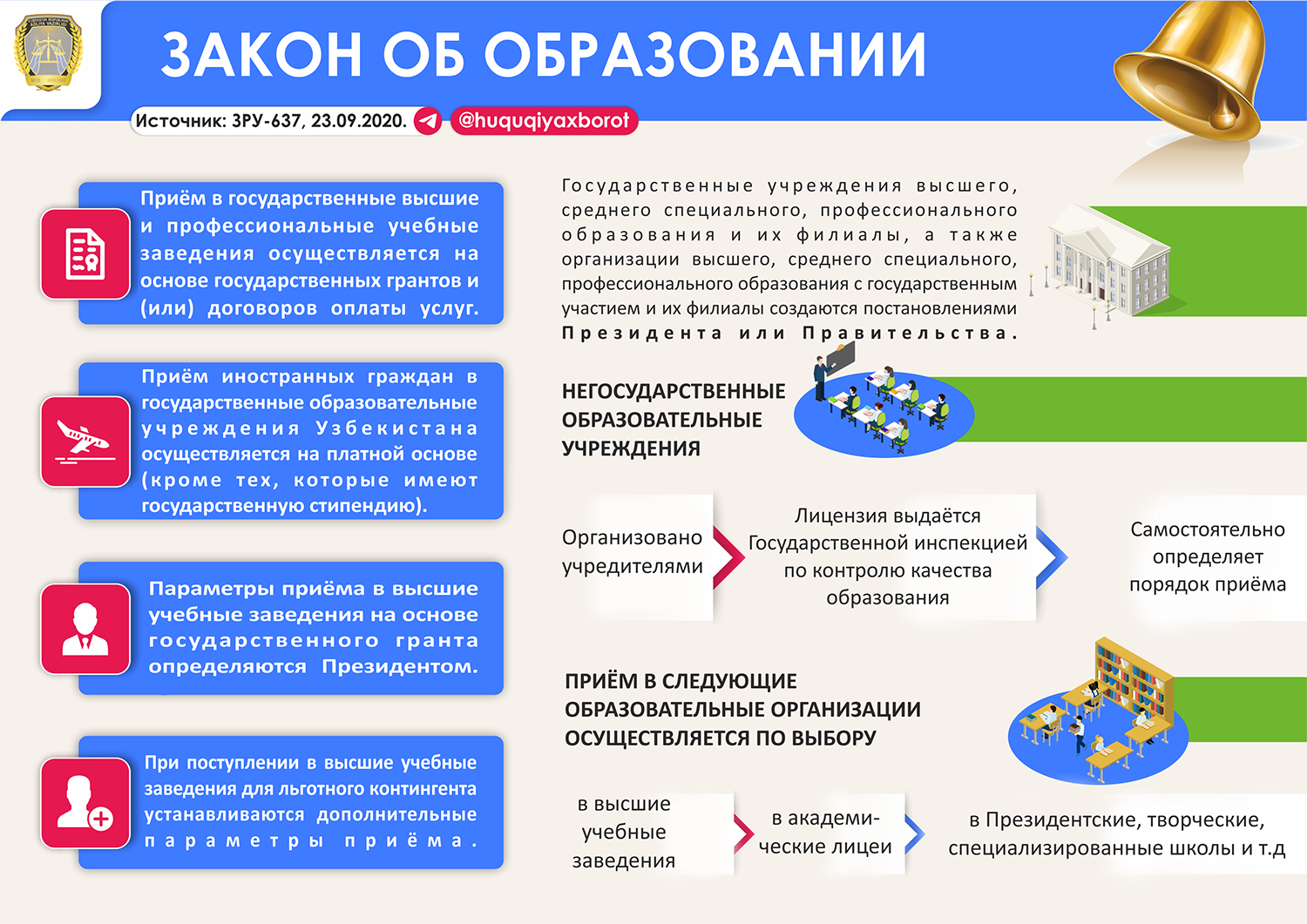The Law “On Education”
The Law of the Republic of Uzbekistan "On Education" guarantees equal rights to education for all, regardless of gender, race, nationality, language, religion, social origin, religion, personal and social status.
Types of education include:
- preschool education and child guidance;
- general secondary and secondary specialized education;
- professional education;
- higher education;
- postgraduate education;
- retraining and qualification upgrading;
- extracurricular education.
General secondary education includes grades I - XI.
Secondary specialized education in academic lyceums is carried out for 2 years on the basis of 9-year basic secondary education.
Professional education is divided into the levels of primary, secondary and secondary specialized professional education.
Primary professional education is provided free of charge under a 2-year integrated program in the form of full-time education on the basis of 9th grade graduates of professional schools.
Secondary professional education in colleges is carried out on the basis of a state order or payment agreement in the form of full-time, part-time and part-time studies up to 2 years.
Secondary specialized professional education is provided in full-time, part-time and part-time forms of education for at least 2 years on the basis of the public order or a payment agreement.
Postgraduate education is available in higher education and research institutions.
Postgraduate education provides for the training of scientific and scientific-pedagogical personnel with academic degrees on the basis of fundamental doctoral and independent research, which provides for a comprehensive study of the specialty and research for the preparation and defense of a doctoral dissertation.
In accordance with the law, state institutions of higher, secondary specialized, professional education and their branches, as well as institutions of higher, secondary specialized, professional education with state participation and their branches are created by decrees of the President or the Government.
The creation of non-state educational institutions is carried out by their founders.
Licenses to non-state educational institutions are issued by the State Inspectorate for Quality Assurance of Education.
Admission to educational institutions is carried out on the principle of providing equal training opportunities for all applicants, with the exception of certain categories of persons who may be provided with benefits in compliance with the law.
Educational institutions are obliged to familiarize applicants and (or) their parents or other legal representatives with the charter, license (for non-state educational institutions), certificate of state accreditation, curriculum and other documents regulating educational activities, rights and obligations of students.
Children with physical, mental or sensory disabilities are admitted to school with the consent of their parents or other legal representatives and the conclusion of the medical-psychological-pedagogical commission.
Admission to some educational institutions (universities, academic lyceums, Presidential, creative, specialized schools, etc.) is carried out on a competitive basis.
Admission to state higher educational institutions and vocational schools is carried out on the basis of a state scholarship and (or) payment agreement.
The procedure for admission to state educational institutions is determined by the Cabinet of Ministers.
The procedure for admission to non-state educational institutions is determined by these educational institutions.
The parameters for admission to higher education institutions on the basis of state grants are established by the President.
In addition, the Laws “On education” and “On national program for training personnel” dated August 29, 1997 are no longer in legal force.
This Law shall enter into force on September 23, 2020.





